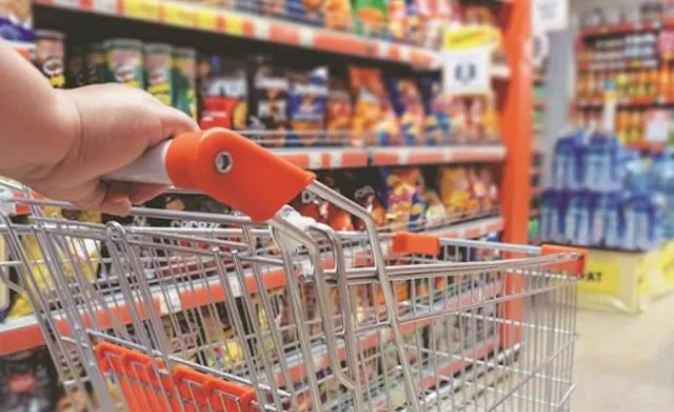The FMCG Sector Expects to Regain Lost Volume and Shrug Off Deflation.
- Dec. 27, 2022
- FMCG HORECA BUSINESS

Shrinkflation, or reducing the size or quantity of a product while maintaining the same price, was a little-known term in India, but a surge in raw material costs following the war in Ukraine compelled a number of FMCG companies to resort to this practice in order to protect the fragile demand recovery.
And when they were left with no alternatives, FMCG (Fast Moving Consumer Goods) corporations increased prices. Now, they want to regain the lost ground in 2023, with a rebound in margins and volumes, particularly from rural regions in difficulty and with commodity prices falling.
In 2023, FMCG businesses are "cautiously confident" that the rural market, which accounts for more than one-third of total sales, would rebound due to a favorable harvest season, government support, and an increase in farm revenue. In addition, they anticipate tailwinds from developing channels such as contemporary trade and e-commerce, which will drive urban demand, as well as an increase in premium discretionary categories.
In addition, the FMCG industry, which witnessed a seismic shift in omnichannel growth with sales significantly outpacing in-store growth across metro cities, anticipates that the trend will continue, and the strategy will be to prioritize profitable channels while focusing on product and consumer experience innovation.
In the beginning of this year, a conflict in Ukraine caused commodities prices to skyrocket, just as demand seemed to be improving. Several FMCG businesses have shrunk product packaging while maintaining the same pricing in response to rising prices of raw materials. This phenomenon, dubbed "shrinkflation," results in customers paying the same price for less goods.
In the last quarter of 2022, however, as Covid infections began to subside and the economy began to expand, demand began to rebound. And FMCG firms, who have been badly impacted by the epidemic over the last two years, are hopeful that the situation would improve in 2023.
"We are cautiously optimistic about 2023 and anticipate a rebound in rural demand in 2023." Emerging channels like as contemporary trade and e-commerce would continue to fuel urban demand development, Dabur India CEO Mohit Malhotra told PTI.
In 2022, the industry had a double-digit price increase. According to a recent analysis by the data analytics company NielsenIQ, the FMCG sector had a 0.9% reduction in volume during the September quarter compared to the prior three months.
Mohan Goenka, vice chairman of Emami, said that high inflation and rural deceleration continue to be issues of worry, although commodity prices have begun to decline.
"Even though commodity prices have been falling since October, the advantages won't be seen until the next fiscal year. We anticipate a rural rebound by 2023 as a result of a favorable growing season, government support, and rising agricultural revenues, he added.
Varun Berry, executive vice chairman and managing director of Britannia Industries, said that post-pandemic demand had stabilized very nicely. On the cost and profitability front, however, commodity inflation remained elevated due to increased prices for bread and dairy goods, he noted.
"Generally speaking, commodities prices are not decreasing at this time. However, we hope that they will be brought under control in the future. Currently, palm oil is the sole commodity whose price is down, while wheat prices are rising and sugar prices have remained unchanged. Hopefully, as we progress, everything will soon be under control," he remarked.
In 2022, the FMCG sector saw the highest proportion of new product releases across major categories due to the introduction of larger pack sizes by corporations in response to inflationary pressures.
President of PepsiCo India Ahmed ElSheikh said, "As we go ahead, our approach will be to prioritize product and customer experience innovation, profitable channels, SKU management, and system-wide execution and productivity."
This decade is India's decade, and PepsiCo is focusing on growing capabilities, extending availability, and driving category innovation, he said.
According to Sunil D'Souza, MD and CEO of Tata Consumer Products Ltd, two significant themes that gained momentum during the pandemic were an increased emphasis on health and wellness and digital usage, and both will continue in the FMCG industry.
"We believe these trends are here to stay, and they will continue to impact our innovation agenda as well as our marketing, sales, and distribution efforts," he added.
However, D'Souza also expressed worries about inflation, expenses, and macroeconomic uncertainty. Consequently, it will be essential to manage margins while maintaining growth momentum, he observed.
In a research released earlier this month, Crisil Ratings anticipated that next fiscal year the sales of FMCG firms will increase between 7 and 9 percent.
The president and chief executive officer of Marico, Saugata Gupta, said, "We anticipate a gradual improvement in margin pressure and cost pressure and are optimistic about a turnaround in rural attitude. The urban consumption and premium category is now in a considerably stronger position than the premium discretionary FMCG market, which had a significantly smaller basis last year, particularly in categories connected to outdoor consumption."
Marico wants to achieve "at least mid-single-digit volume growth in the second half" and "expects its digital portfolio to continue increasing every quarter till it reaches Rs 450-500 crore in FY24," he added.
Nestle India will continue to develop its RURBAN strategy, with distribution growth and portfolio alterations serving as important focuses.
In addition, technology and data will be essential to Nestle India's future success, according to a Nestle India representative.
In addition, FMCG businesses would spend in expanding their manufacturing capacities and sales networks in rural regions.
"During the fiscal year 2023-2024, we would build another greenfield facility in Bihar at a cost of around Rs 275 crore." We are also considering further expenditures to support our innovations, which will be essential throughout the next phase of our development," stated Britannia's Berry.



